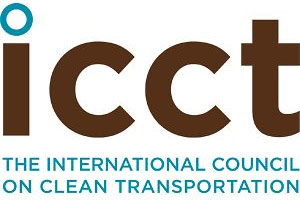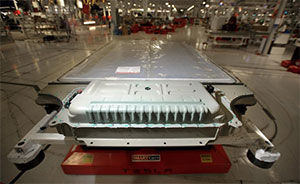I wouldn’t put my health in the hands of a doctor that, after a quick glance, told me, “I have a hunch, don’t ask me why, but I think you should have heart surgery.” Yet to my eyes, that’s exactly what Jeff Gundlach has suggested to Elon Musk; to give Tesla open-heart surgery.
 Last May, Jeffrey Gundlach, founder of DoubleLine Capital and self-proclaimed bond-fund manager extraordinaire, said for the second time that Elon Musk, chairman of Tesla Motors, should pull the plug on the EV’s emporium and move on to making batteries. As if that’s what Tesla Motors was all about.
Last May, Jeffrey Gundlach, founder of DoubleLine Capital and self-proclaimed bond-fund manager extraordinaire, said for the second time that Elon Musk, chairman of Tesla Motors, should pull the plug on the EV’s emporium and move on to making batteries. As if that’s what Tesla Motors was all about.
The otherworldly suggestion that can only be qualified as flippant, had the usual lack of backup that Mr. Gundlach seems to be proud of. “Look, I have a gift, or some would say a curse, of being able to have stunning insight into the reality of markets and the economy,” said Jeff Gundlach, in 2011. Well, having a gift may not be enough of an argument to tell Tesla—which carries a non-negligible, $26-billion market capitalization—to leave the automotive industry.
We already know that despite his promptitude to opine, his expertise is in running bond portfolios. Now, there’s no doubt Mr. Gundlach is a skilled bond strategist; but clearly lacks a fundamental understanding about Tesla’s strategy. Gundlach adds that Tesla, “…could be wildly transformational, the way electricity and electromagnets were…” makes us wonder if the theoretical mathematician knows enough about practical technology.
Thinking in terms of bonds is a mistake when it comes to Tesla Motors. Switching to the sole production and commercialization of batteries may result in a short-term rise in sales, and skyrocketing of bonds; but industries that do not diversify are meant to perish.
 Tesla has evolved comprehensively: from the battery to the motor, from the motor to the car—powered mainly by the unwavering passion of Elon Musk. Tesla is betting on a future that is not only within reach, but happening already. Global electric-vehicle (EV) sales doubled in 2013, and with the growing trend of tax exemptions and government subsidies, electric vehicles are well on their way to seeing exponential growth. Fiscal incentives in northern European countries are the most attractive ones at the moment, but I wouldn’t be completely surprised if China (the biggest consumer and polluter in the world), made the sudden move to cut some slack to EV users too.
Tesla has evolved comprehensively: from the battery to the motor, from the motor to the car—powered mainly by the unwavering passion of Elon Musk. Tesla is betting on a future that is not only within reach, but happening already. Global electric-vehicle (EV) sales doubled in 2013, and with the growing trend of tax exemptions and government subsidies, electric vehicles are well on their way to seeing exponential growth. Fiscal incentives in northern European countries are the most attractive ones at the moment, but I wouldn’t be completely surprised if China (the biggest consumer and polluter in the world), made the sudden move to cut some slack to EV users too.
Jeff Gundlach might forget what Elon Musk doesn’t. Consumers are becoming increasingly aware of what they purchase, be it bonds or cars, and there’s a growing tendency to be more socially responsible. If we join the cynics for a second, we can admit some people move to sustainable technologies because they are cheaper and have fiscal incentives attached. That is, however, not what will move the market forward.
 According to the International Council on Clean Transportation (ICCT), fiscal incentives do matter, “but are clearly not the only factor that influences today’s electric vehicle market growth.” A new consumer culture added to the preference for new technology, may as well be the ones to thank for the rise of cleaner vehicles; a fact Mr. Gundlach hasn’t factored into his judgment.
According to the International Council on Clean Transportation (ICCT), fiscal incentives do matter, “but are clearly not the only factor that influences today’s electric vehicle market growth.” A new consumer culture added to the preference for new technology, may as well be the ones to thank for the rise of cleaner vehicles; a fact Mr. Gundlach hasn’t factored into his judgment.
Tesla does have a competitive advantage when it comes to stationary energy storage; there’s no denying that fact. If it wasn’t so, we wouldn’t see Mercedes-Benz and Nissan using Tesla technology. But it has a much broader strategy worth praising. Tesla will continue to make EVs; there’s no doubt in Musk’s mind. He has already announced the Model III; which is due in 2017 and it will be even more economical. However, let’s not turn a blind eye to those who did their due diligence.
Goldman Sachs recently announced that Tesla is worth $200 a share. They evaluated the implications of the new Gigafactory Tesla plans to open, with the support of investors, and have come to the conclusion the company’s groundbreaking market is on stationary energy storage. They were cautious about this shift, recognizing what is evident for all—except, perhaps, for Mr. Gundlach. This is a high-risk move; especially, since the Gigafactory isn’t even in place yet. Once it’s open, the Gigafactory (which may be in California) will not be mass-producing Lithium ion-batteries until about 2025. What is Mr. Gundlach suggesting, then? That Elon Musk sit and wait for the next eleven years until this happens?
 Morgan Stanley, on the other hand, has openly praised Tesla for being the only automaker that has fulfilled expectations, when it comes to producing EVs. They have noted the brand is so important that several states in the U.S. are asking Tesla to build the new Gigafactory in their territory. We can see why, thousands of new jobs and the intrinsic reputation of clean technologies are quite an attractive boost to the economy. But it’s not the batteries in themselves that have pushed this technology forward. It has been the EVs. For evidence, you can look to the hundreds of Tesla patents that have been made “open source” for other carmakers to use, in order to promote innovation. Apple and Samsung could learn this valuable lesson.
Morgan Stanley, on the other hand, has openly praised Tesla for being the only automaker that has fulfilled expectations, when it comes to producing EVs. They have noted the brand is so important that several states in the U.S. are asking Tesla to build the new Gigafactory in their territory. We can see why, thousands of new jobs and the intrinsic reputation of clean technologies are quite an attractive boost to the economy. But it’s not the batteries in themselves that have pushed this technology forward. It has been the EVs. For evidence, you can look to the hundreds of Tesla patents that have been made “open source” for other carmakers to use, in order to promote innovation. Apple and Samsung could learn this valuable lesson.
Looking ahead, Tesla’s competitive advantage in EV is likely to grow even more strongly, thanks to their 6,000 highly-skilled employees and their upcoming ability to mass-produce the Lithium-ion batteries that power them. When the factory is running at full capacity, the price of the batteries will fall by more than 30%, making Tesla the supplier of its own technology—as it has always been—with the advantage of having a growing revenue stream that helps fund further innovation.
We can be confident that in the near future, we’ll see more Tesla vehicles on the streets. Elon Musk’s strategy is clear: Tesla is making and will continue to make history; a fact that the King of Bonds considered negligible or even incomprehensible.

